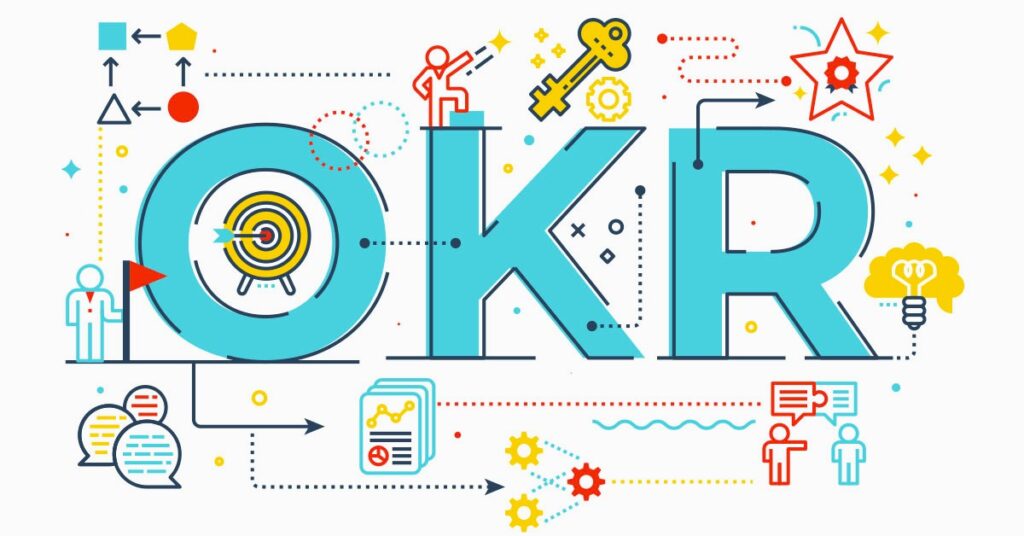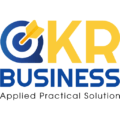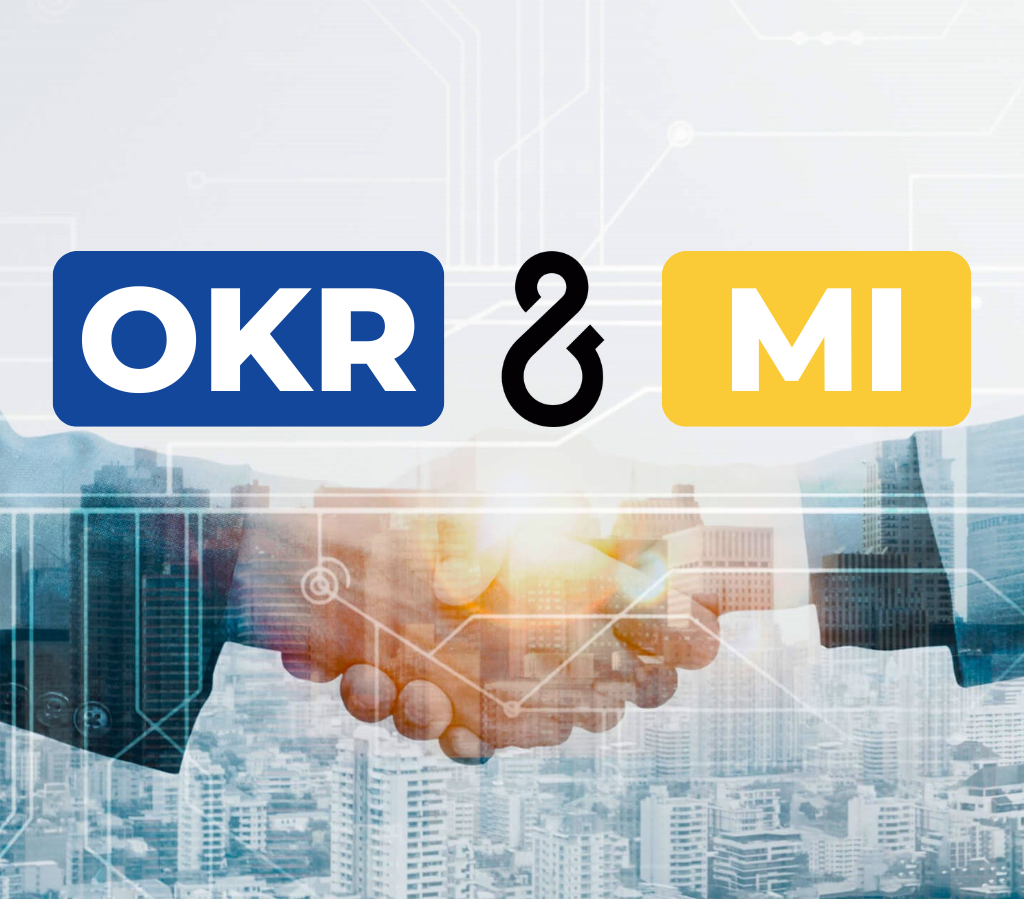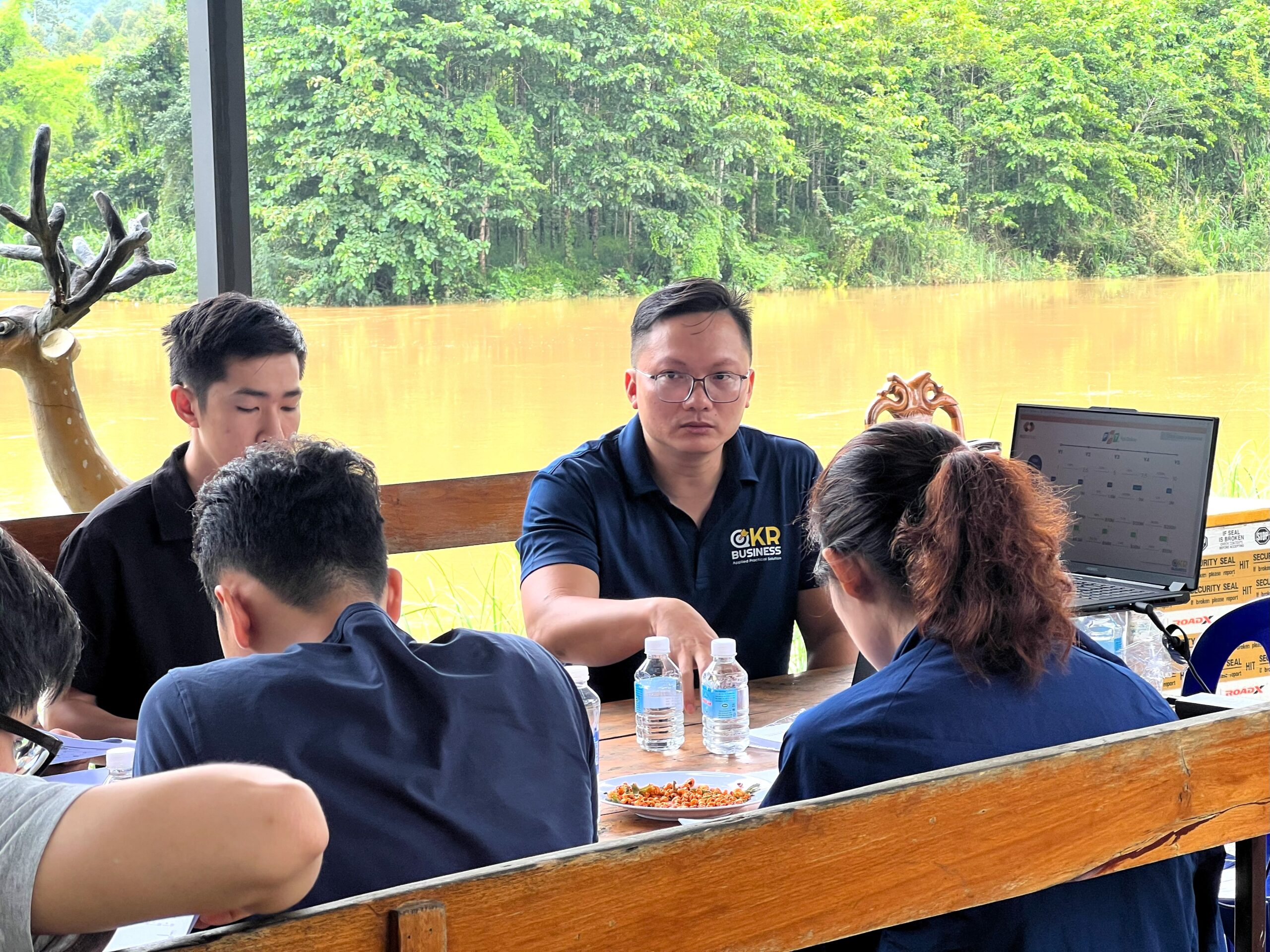In the context of an increasingly competitive globalized market, modern businesses, especially SMEs and startups, are facing pressure to constantly innovate and develop rapidly to maintain their existence and sustainable growth. Among them, the application of OKRs (Objectives and Key Results) is emerging as a modern and highly effective goal management method, helping business leaders clearly define business orientations, measure progress, and promote growth motivation of the team. Inspired and proven by large corporations such as Google, Amazon, and Intel, many businesses around the globe have been and are strongly applying OKRs into their corporate governance systems.

OKRs – A well-known goal management method
OKRs are not just a management tool; they are also a method and principle of management that builds a positive working culture and connects members within the organization, helping to focus on the most important common goals. Although it has received significant attention from businesses in the APAC region and in Vietnam, implementing OKRs in reality is not simple, especially for businesses that lack experience or resources to build a systematic goal management system. Below, let’s take a look at 4 typical challenges in applying OKRs with OKR.BUSINESS, along with some potential solutions to optimize management efficiency and achieve the set goals.
Challenge 1: Professional competence and working skills of the team
One of the first difficulties is the professional competence of the personnel in implementing challenging goals and achieving the necessary key results. One of the prerequisites of OKRs is the excellent situational handling ability of the personnel during daily operations. This includes overcoming customer challenges and market fluctuations to achieve the expected results.
It is undeniable that personnel in small businesses are often very good and flexible but lack experience in implementing a methodical goal management system like OKRs. This is a common situation in most businesses, especially SMEs and startups, with limited resources to recruit and train personnel methodically. The business team may be doing well in one or several professional aspects, but to achieve business results, it is often necessary to combine many skill sets, both professional (hard skills) and supporting work skills (soft skills). The business personnel may face challenges not only in problem-solving but also in effective internal communication or skillful interaction with customers. The obvious result is that the key results may only reach 40-60% compared to expectations, especially in the first few cycles when applying OKRs.

The working capacity as a team is very important to realize OKRs
For example, when the business goal is to ‘Increase total sales by 20% in 3 months’, the personnel may only achieve 10% due to the current capacity gap, despite great efforts. Continuous exchange and adjustment of skills through periodic tests and evaluations will also help businesses grasp and improve the capacity of the team. From there, managers and leaders need to proactively train personnel, organize relevant courses, establish support groups, or invite expert consultants to create a solid knowledge base and improve professional skills.
Challenge 2: Result-oriented thinking, proactiveness, and determination of each member
In Asian culture, employees tend to wait for instructions from superiors instead of being proactive in proposing solutions or volunteering for additional tasks. This stems from traditional thinking and can happen even with highly specialized and experienced personnel. Meanwhile, the effective application of OKRs requires a strong change in thinking and working methods. Each individual in the organization needs to be proactive in their work, ready to think with a focus on results to achieve goals and self-lead. This requires a positive working culture and the determination of the entire organization, helping employees clearly understand the value of goals for personal development and contributing to the company’s overall success.
Businesses need to create conditions for employees to exchange and receive regular feedback (according to the CFR principle – Conversation, Feedback, Recognition), while building an appropriate empowerment culture, encouraging employees to proactively propose solutions. Periodic OKRs meetings should also include feedback and support from management so that employees feel cared for and willing to contribute. Flexibility in supporting mentoring and on-the-job coaching from direct managers will bring effective value in promoting the team’s self-management thinking and sense of responsibility.

Each and every outstanding member is like a strong link in the organization
For example, leaders can organize seminars or short-term courses on self-management and creative problem-solving skills to encourage employees to think independently and proactively. At the same time, businesses should also establish a system to recognize and reward employee suggestions and initiatives, motivating active and enthusiastic participation. In work, it is necessary to describe the work specifically, set clear evaluation criteria, and regularly ask questions to stimulate the team’s thinking. Depending on the situation and urgency, these will be good opportunities to hone abilities and improve employee capacity.
Challenge 3: Ability to maintain and nurture OKRs in the organization
The ability to maintain and nurture the “OKRs culture” are two major challenges for the role of the business that leaders need to focus on. Applying OKRs effectively often takes time to truly take effect, but many businesses lack patience and want to see short-term results. Under normal conditions, the implementation of OKRs takes an average of about 3-4 cycles, equivalent to 9-12 months, before the organization can see clear results. In reality, including both objective and subjective impacts, the pressure on businesses in the short term and becoming impatient can make the whole organization easily give up on OKRs before achieving the necessary transformation and desired results.
To promote OKRs effectively, businesses need to have a specific roadmap, divided into small stages for employees and managers to gradually get acquainted with the system. Businesses can experiment with short-term cycles, such as just one month, for staff to gradually adapt and improve operations together. In particular, the participation of experienced OKRs experts from the beginning will help build an open working culture, encouraging the spirit of learning from small but valuable failures and sharing experiences in the implementation process together.

Successfully applying OKRs requires an investment of appropriate time and resources
Patience and continuous improvement in applying OKRs are core factors for achieving long-term success. Businesses should regularly promote a culture of continuous learning and encourage employees to self-assess their work processes. Periodic evaluation and feedback sessions need to be organized to adjust goals and key results to suit the actual situation. In addition, businesses need to ensure that each employee understands their role and responsibilities in achieving goals. This can be done by establishing clear evaluation criteria and holding regular meetings to discuss and resolve emerging issues. In which, the management will play the role of supporter, always ready to listen and help employees throughout the OKRs implementation process.
Challenge 4: Leadership capacity and commitment to OKRs of the business
The leadership team must be the first and foremost in applying and maintaining the OKRs management culture. Considering OKRs as just a temporary management “trend” will make it difficult for the organization to achieve the expected results. The leadership team not only needs to clearly understand the value of OKRs but also needs to be truly committed to implementation to inspire and motivate employees. They need to act as leaders, setting an example to spread the spirit and vision of OKRs, shown through consistency in all decisions and daily operations.
The leadership team and management levels need to regularly communicate, emphasize the importance of OKRs, encourage employee participation, and help them clearly understand the long-term vision and benefits of achieving OKRs goals. This will create a positive working environment where employees not only feel motivated but also committed and always supported in striving to achieve common goals.
In addition, according to Situational Leadership theory, managers need to flexibly adjust their leadership style to suit each employee, helping them to engage and contribute to common goals. This flexibility will help management adapt to different situations, thereby increasing work efficiency and solidarity throughout the business.

Commitment and accompaniment of the leadership team are a solid foundation for OKRs to take off
When challenges are clearly identified and specific solutions are readily available, SME and startup businesses can confidently embark on the journey of applying OKRs. The professional competence and working skills of the team, combined with the result-oriented thinking, proactiveness, and determination of each member, are a solid foundation. The ability to maintain and nurture OKRs in the organization, along with leadership capacity and commitment from the leadership, will be a solid foundation to inspire and motivate employees. Patience and commitment from leadership, along with the initiative of employees, are the keys to helping OKRs become not just a great management system but also a part of a positive working culture, contributing to the sustainable and impressive development of the business.





